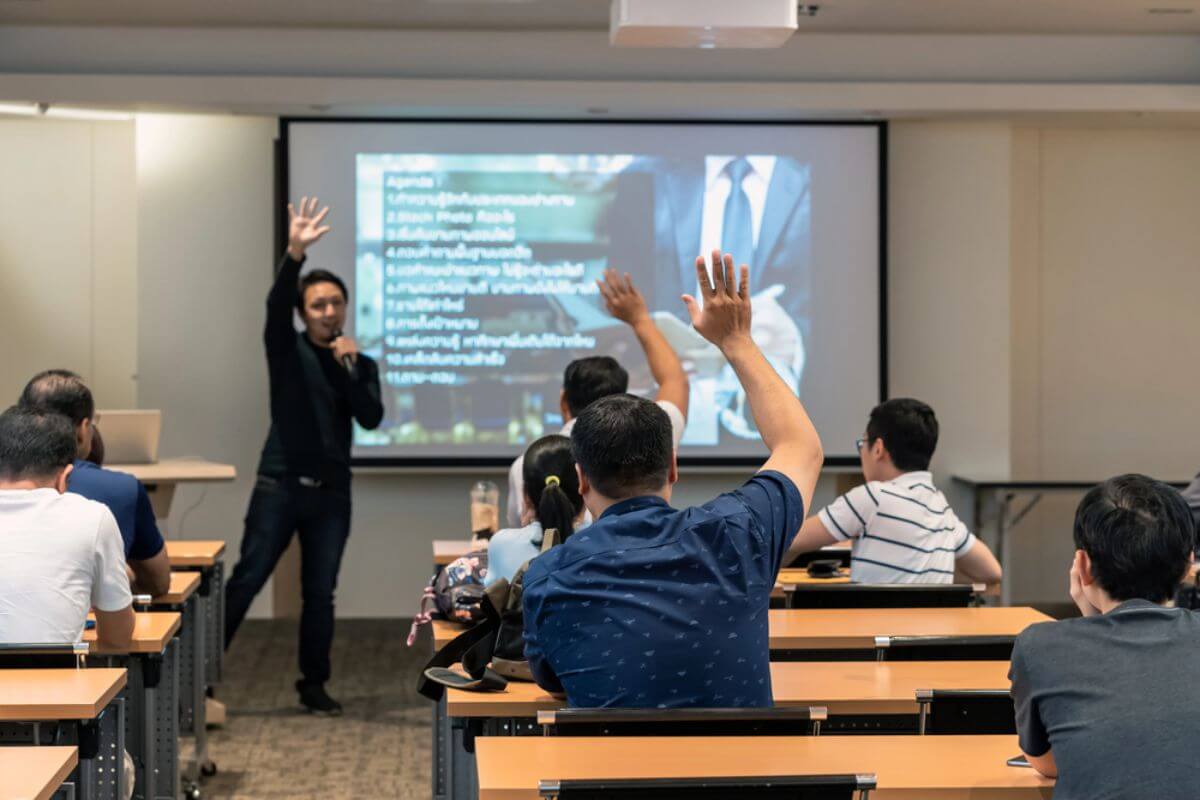
What to look for in a leadership speaker in the Philippines?
- Solid experience and background
- Clear and confident speaking style
- Content that feels relevant and practical
- Good understanding of local culture
- Professionalism and event readiness
Overview
Choosing a leadership speaker is a strategic move. Look for someone with proven experience, a confident delivery, practical and culturally relevant content, and the ability to drive real change.
The best speakers inspire while equipping teams with tools and insights that lead to measurable results.
Bringing in a leadership speaker isn’t just about filling a program slot—it’s about shaping how teams think, lead, and grow. The right speaker can set the tone not only for your event, but for the mindset and momentum that follow.
Today, choosing the right fit can be harder than it seems. With plenty of confident speakers and polished profiles, it’s easy to overlook whether someone can truly connect with your audience and support your goals.
To help you make a more strategic decision, this guide outlines what to look for in a leadership speaker in the Philippines, allowing you to choose someone who delivers lasting value, not just a good speech.
Solid Experience and Background

Not all leadership speakers are built the same. Some bring charisma but lack relevance; others are seasoned but stiff on stage. What matters most is proven alignment between what they say and what they’ve done.
Choose a speaker with proven leadership experience, someone who has guided teams, faced real challenges, or built successful ventures. Their stories are more impactful when they come from personal experience. For corporate audiences, this often includes former executives, entrepreneurs, or respected mentors within the industry.
A speaker’s reputation also matters. Look at their past speaking engagements, client feedback, and results to see how well they adapt and provide consistent value. Leadership is not just a lesson to teach but a quality that must be earned, and your audience will recognize that difference.
Clear and Confident Speaking Style
No matter how impressive their background, a speaker will fall flat if they can’t keep a room engaged. You want someone who can make ideas land, not just through clear language, but through energy, presence, and flow.
This doesn’t mean they need to be theatrical or overly polished. What works best is a natural, grounded tone that adjusts to the audience, be it frontliners, executives, or students. A skilled leadership speaker reads the room, knows when to pause, when to push, and when to shift formats if the energy dips.
Beyond public speaking chops, check for storytelling skills. Strong speakers use examples, analogies, and lived experiences to give abstract principles real-world shape. These aren’t just communication tactics—they’re essential for translating leadership theory into take-home insight.
Content That Feels Relevant and Practical
A strong leadership speaker goes beyond inspiration by offering practical tools like frameworks, decision models, and actionable steps your team can apply right away.
Relevance is also key. For Philippine audiences, locally grounded examples resonate more than abstract or foreign case studies. The speaker should show a real understanding of how leadership works in the local context.
Finally, the talk should drive measurable outcomes—improved collaboration, clearer communication, and more decisive leadership. If it doesn’t lead to action, it delivers inspiration, not impact.
Good Understanding of Local Culture
Cultural context shapes how leadership is practiced. In the Philippines, where relationships and hierarchy matter, speakers must address how influence and authority work in real Filipino settings rather than relying on general principles.
That’s the core of understanding what to look for in a leadership speaker in the Philippines—someone who can speak to leadership through a localized lens, such as that of pakikisama, indirect communication, and the often-unspoken dynamics that shape team performance locally. These aren’t just side notes—they affect how your audience absorbs, questions, and applies what they learn.
The strongest speakers don’t simply translate global ideas into Filipino; they build from within the culture. Using local case studies, Taglish delivery, or stories that reflect your team’s real-world experiences, the right speaker makes leadership feel relatable rather than distant.
Professionalism and Event Readiness

Beyond inspiration, logistics matter. You need a speaker who treats your event as a professional engagement, not just a performance slot.
This means punctuality, prompt replies, and readiness to align with your program’s goals. Top-tier speakers clarify AV needs early, share outlines in advance, and stay in sync with your team. These touchpoints minimize surprises and build trust.
Equally important is flexibility. Speakers who take time to understand your audience—whether through pre-event calls or background briefs—are more likely to deliver tailored, relevant content. Credentials and affiliations also reflect a speaker’s commitment to ongoing learning and ethical practices. You’re not just booking a voice—you’re investing in a message your audience will remember.
Key Takeaway
A leadership speaker’s real value lies in what they help your audience unlock. When they align with your team’s goals, speak to your realities, and deliver with cultural fluency, they do more than inspire—they catalyze change that lasts beyond the event.
Discover the ideal leadership speaker for your event with Best Org. Our curated lists feature credible voices known for delivering insight and impact. Contact us today to find the right speaker for your audience.